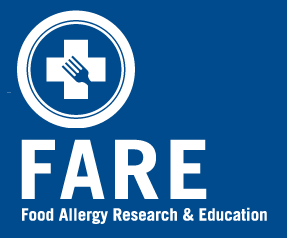This month, FARE filed a complaint with the U.S. Department of Transportation against American Airlines for violations of the Air Carrier Act. FARE is seeking to protect the rights of individuals with food allergies who travel by air. This complaint addresses American Airlines’ written policy prohibiting passengers managing food allergies from pre-boarding – a policy that is a violation of the Air Carrier Access Act, which states pre-boarding must be offered to passengers with a disability who self-identify as needing additional time or assistance to board.
Through our filing of this complaint, FARE is calling on the DOT to take enforcement action against American Airlines for this discriminatory policy. We wanted to be sure to share this news with you and keep you updated on FARE’s continuing advocacy efforts.
This discriminatory action on the part of American Airlines is in stark contrast to my experience with Delta on January 10th when the Captain made the decision to have the airplane’s catering remove an allergen to accommodate a passenger with a food allergy. To accommodate this passenger the flight was briefly delayed and then went on its way. This was a good call on the part of the Delta Captain. Not only are those with food allergies protected by the American’s With Disabilities Act, but the Captain had a duty to ensure the safety of all passengers.
 Other examples of growing food allergy awareness include the addition of MadeGood Granola Bars on Jet Blue. These are organic granola bars free from all eight federally recognized allergens that are known to cause the majority of allergic reactions in the United States.
Other examples of growing food allergy awareness include the addition of MadeGood Granola Bars on Jet Blue. These are organic granola bars free from all eight federally recognized allergens that are known to cause the majority of allergic reactions in the United States.
British Airways has announced that passengers with severe nut allergies can travel with confidence. They will suspend the sale of all snacks and confectionery which contain nuts (not just loose nut products). They’ve also outlined a clear treatment of specific food allergies in their menus and what passengers can expect in order to mitigate risk and communicate more effectively with consumers. While American Airlines is a partner airline of British Airways, it is surprising that American Airlines has adopted questionable policies.
In an environment of conflicting attitudes and lack of understanding about food allergies and the inclusion of those with different needs, these airlines serve as examples of a growing movement to act responsibly and in the best interest of the safety of all passengers. It’s unfortunate that American Airlines has adopted a policy of intolerance. I can only hope they reconsider their actions and adopt a set of policies that are better aligned with the law and will ensure passenger rights and safety.
The following press release was originally published on January 10th, 2017 on the FARE website as they call for an investigation of American Airlines for violations against those with food allergies who travel by air.
FARE stands for Food Allergy Research & Education and their mission is to improve the quality of life and the health of individuals with food allergies, and to provide them hope through the promise of new treatments.
Food Allergy Research & Education Calls on U.S. Department of Transportation To Take Action on Discriminatory Food Allergy Policy by American Airlines
|
ABOUT FARE
Food Allergy Research & Education (FARE) works on behalf of the 15 million Americans with food allergies, including all those at risk for life-threatening anaphylaxis. This potentially deadly disease affects 1 in every 13 children in the U.S. – or roughly two in every classroom. FARE’s mission is to improve the quality of life and the health of individuals with food allergies, and to provide them hope through the promise of new treatments. Our work is organized around three core tenets: LIFE – support the ability of individuals with food allergies to live safe, productive lives with the respect of others through our education and advocacy initiatives; HEALTH – enhance the healthcare access of individuals with food allergies to state-of-the-art diagnosis and treatment; and HOPE – encourage and fund research in both industry and academia that promises new therapies to improve the allergic condition. For more information, please visit www.foodallergy.org and find us on Twitter@FoodAllergy, Facebook, YouTube and Pinterest.



